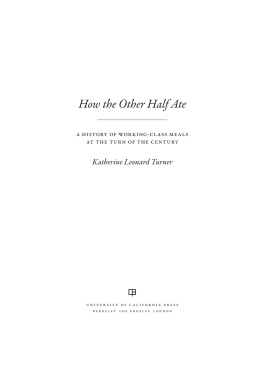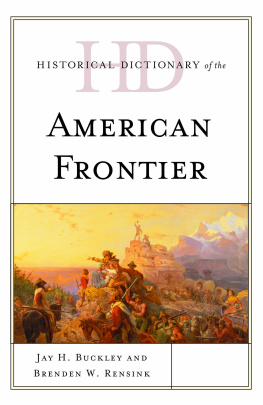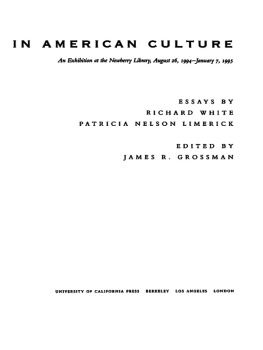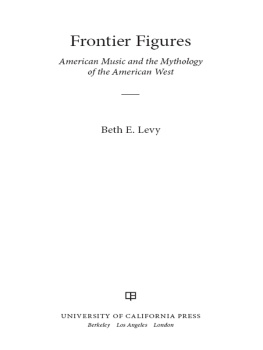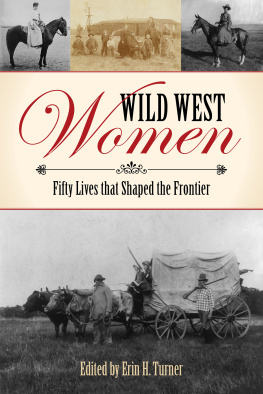Turner - The Significance of the Frontier in American History
Here you can read online Turner - The Significance of the Frontier in American History full text of the book (entire story) in english for free. Download pdf and epub, get meaning, cover and reviews about this ebook. City: London;United States, year: 2008;2010, publisher: Penguin Books Ltd, genre: Politics. Description of the work, (preface) as well as reviews are available. Best literature library LitArk.com created for fans of good reading and offers a wide selection of genres:
Romance novel
Science fiction
Adventure
Detective
Science
History
Home and family
Prose
Art
Politics
Computer
Non-fiction
Religion
Business
Children
Humor
Choose a favorite category and find really read worthwhile books. Enjoy immersion in the world of imagination, feel the emotions of the characters or learn something new for yourself, make an fascinating discovery.

- Book:The Significance of the Frontier in American History
- Author:
- Publisher:Penguin Books Ltd
- Genre:
- Year:2008;2010
- City:London;United States
- Rating:5 / 5
- Favourites:Add to favourites
- Your mark:
- 100
- 1
- 2
- 3
- 4
- 5
The Significance of the Frontier in American History: summary, description and annotation
We offer to read an annotation, description, summary or preface (depends on what the author of the book "The Significance of the Frontier in American History" wrote himself). If you haven't found the necessary information about the book — write in the comments, we will try to find it.
The Significance of the Frontier in American History — read online for free the complete book (whole text) full work
Below is the text of the book, divided by pages. System saving the place of the last page read, allows you to conveniently read the book "The Significance of the Frontier in American History" online for free, without having to search again every time where you left off. Put a bookmark, and you can go to the page where you finished reading at any time.
Font size:
Interval:
Bookmark:
Frederick Jackson Turner
18611932
Frederick Jackson Turner
PENGUIN BOOKS GREAT IDEAS
PENGUIN BOOKS
Published by the Penguin Group
Penguin Books Ltd, 80 Strand, London WC2R 0RL , England
Penguin Group (USA) Inc., 375 Hudson Street, New York, New York 10014, USA
Penguin Group (Canada), 90 Eglinton Avenue East, Suite 700, Toronto, Ontario, Canada M4P 2Y3
(a division of Pearson Penguin Canada Inc.)
Penguin Ireland, 25 St Stephens Green, Dublin 2, Ireland
(a division of Penguin Books Ltd)
Penguin Group (Australia), 250 Camberwell Road, Camberwell, Victoria 3124, Australia
(a division of Pearson Australia Group Pty Ltd)
Penguin Books India Pvt Ltd, 11 Community Centre, Panchsheel Park, New Delhi 110 017, India
Penguin Group (NZ), 67 Apollo Drive, Rosedale, North Shore 0632, New Zealand
(a division of Pearson New Zealand Ltd)
Penguin Books (South Africa) (Pty) Ltd, 24 Sturdee Avenue, Rosebank, Johannesburg 2196, South Africa
Penguin Books Ltd, Registered Offices: 80 Strand, London WC2R 0RL , England
www.penguin.com
The Frontier in American History first published 1920
This selection first published 2008
All rights reserved
Except in the United States of America, this book is sold subject to the condition that it shall not, by way of trade or otherwise, be lent, re-sold, hired out, or otherwise circulated without the publishers prior consent in any form of binding or cover other than that in which it is published and without a similar condition including this condition being imposed on the subsequent purchaser
ISBN: 978-0-141-96331-0
I
In a recent bulletin of the Superintendent of the Census for 1890 appear these significant words: Up to and including 1880 the country had a frontier of settlement, but at present the unsettled area has been so broken into by isolated bodies of settlement that there can hardly be said to be a frontier line. In the discussion of its extent, its westward movement, etc., it can not, therefore, any longer have a place in the census reports. This brief official statement marks the closing of a great historic movement. Up to our own day American history has been in a large degree the history of the colonization of the Great West. The existence of an area of free land, its continuous recession, and the advance of American settlement westward, explain American development.
Behind institutions, behind constitutional forms and modifications, lie the vital forces that call these organs into life and shape them to meet changing conditions. The peculiarity of American institutions is, the fact that they have been compelled to adapt themselves to the changes of an expanding people to the changes involved in crossing a continent, in winning a wilderness, and in developing at each area of this progress out of the primitive economic and political conditions of the frontier into the complexity of city life. Said Calhoun in 1817, We are great, and rapidly I was about to say fearfully growing! So saying, he touched the distinguishing feature of American life. All peoples show development; the germ theory of politics has been sufficiently emphasized. In the case of most nations, however, the development has occurred in a limited area; and if the nation has expanded, it has met other growing peoples whom it has conquered. But in the case of the United States we have a different phenomenon. Limiting our attention to the Atlantic coast, we have the familiar phenomenon of the evolution of institutions in a limited area, such as the rise of representative government; the differentiation of simple colonial governments into complex organs; the progress from primitive industrial society, without division of labor, up to manufacturing civilization. But we have in addition to this a recurrence of the process of evolution in each western area reached in the process of expansion. Thus American development has exhibited not merely advance along a single line, but a return to primitive conditions on a continually advancing frontier line, and a new development for that area. American social development has been continually beginning over again on the frontier. This perennial rebirth, this fluidity of American life, this expansion westward with its new opportunities, its continuous touch with the simplicity of primitive society, furnish the forces dominating American character. The true point of view in the history of this nation is not the Atlantic coast, it is the Great West. Even the slavery struggle, which is made so exclusive an object of attention by writers like Professor von Hoist, occupies its important place in American history because of its relation to westward expansion.
In this advance, the frontier is the outer edge of the wave the meeting point between savagery and civilization. Much has been written about the frontier from the point of view of border warfare and the chase, but as a field for the serious study of the economist and the historian it has been neglected.
The American frontier is sharply distinguished from the European frontier a fortified boundary line running through dense populations. The most significant thing about the American frontier is, that it lies at the hither edge of free land. In the census reports it is treated as the margin of that settlement which has a density of two or more to the square mile. The term is an elastic one, and for our purposes does not need sharp definition. We shall consider the whole frontier belt, including the Indian country and the outer margin of the settled area of the census reports. This paper will make no attempt to treat the subject exhaustively; its aim is simply to call attention to the frontier as a fertile field for investigation, and to suggest some of the problems which arise in connection with it.
In the settlement of America we have to observe how European life entered the continent, and how America modified and developed that life and reacted on Europe. Our early history is the study of European germs developing in an American environment. Too exclusive attention has been paid by institutional students to the Germanic origins, too little to the American factors. The frontier is the line of most rapid and effective Americanization. The wilderness masters the colonist. It finds him a European in dress, industries, tools, modes of travel, and thought. It takes him from the railroad car and puts him in the birch canoe. It strips off the garments of civilization and arrays him in the hunting shirt and the moccasin. It puts him in the log cabin of the Cherokee and Iroquois and runs an Indian palisade around him. Before long he has gone to planting Indian corn and plowing with a sharp stick; he shouts the war cry and takes the scalp in orthodox Indian fashion. In short, at the frontier the environment is at first too strong for the man. He must accept the conditions which it furnishes, or perish, and so he fits himself into the Indian clearings and follows the Indian trails. Little by little he transforms the wilderness, but the outcome is not the old Europe, not simply the development of Germanic germs, any more than the first phenomenon was a case of reversion to the Germanic mark. The fact is, that here is a new product that is American. At first, the frontier was the Atlantic coast. It was the frontier of Europe in a very real sense. Moving westward, the frontier became more and more American. As successive terminal moraines result from successive glaciations, so each frontier leaves its traces behind it, and when it becomes a settled area the region still partakes of the frontier characteristics. Thus the advance of the frontier has meant a steady movement away from the influence of Europe, a steady growth of independence on American lines. And to study this advance, the men who grew up under these conditions, and the political, economic, and social results of it, is to study the really American part of our history.
Next pageFont size:
Interval:
Bookmark:
Similar books «The Significance of the Frontier in American History»
Look at similar books to The Significance of the Frontier in American History. We have selected literature similar in name and meaning in the hope of providing readers with more options to find new, interesting, not yet read works.
Discussion, reviews of the book The Significance of the Frontier in American History and just readers' own opinions. Leave your comments, write what you think about the work, its meaning or the main characters. Specify what exactly you liked and what you didn't like, and why you think so.






